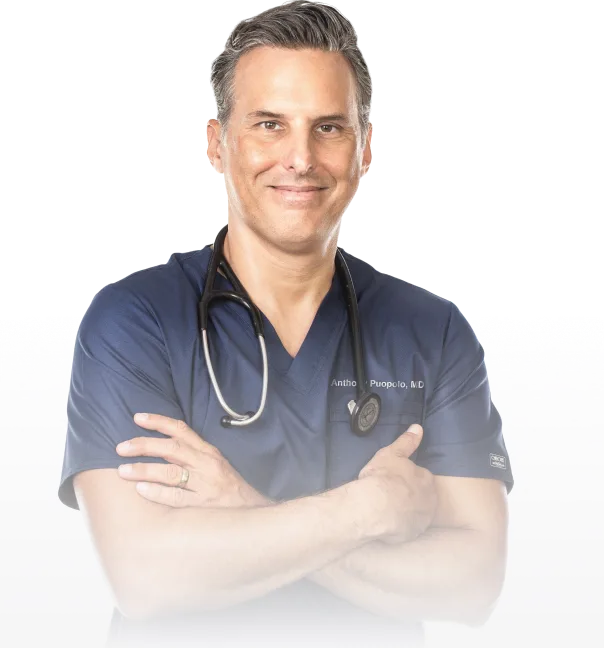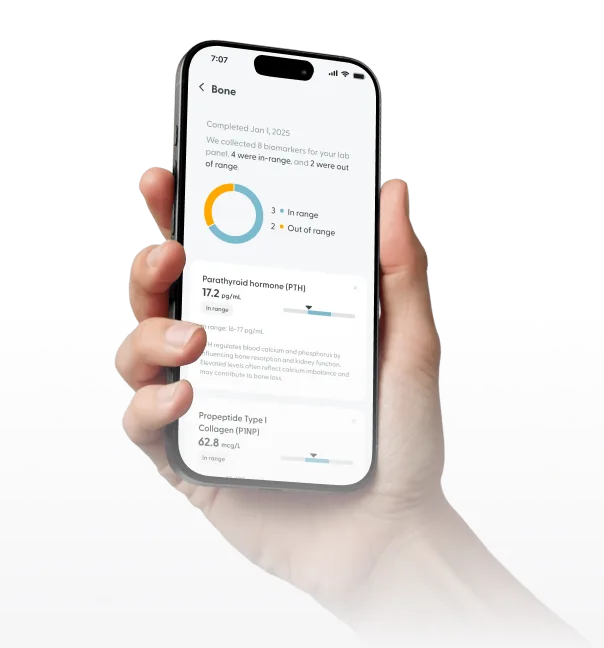Schedule
Book a telehealth appointment from wherever you are. No insurance necessary.
Achieve your weight-loss goals with GLP-1 treatments like Wegovy® and Zepbound®, guided by licensed providers every step of the way.
Personalized care for women, with HRT and lifestyle support to ease menopause symptoms and restore balance.
Simple, supportive mental health care on your terms, including access to prescription medication when appropriate.
Connect with board-certified cardiologists to help manage blood pressure, cholesterol, and long-term cardiovascular risk — from the comfort of home.
Care without the wait—connect 24/7 with licensed providers for same-day prescription refills and common concerns like colds, flu, rashes, and more.
Talk to a doctor anytime, anywhere — 24/7 urgent & primary care with a telehealth visit in under one hour.
Get your medication prescribed online and sent same-day to your local pharmacy for pickup.
Save time, money, and the hassle — no in-person visits or insurance required.


Prescription treatments are tailored to your specific condition, ensuring effective relief.

Urgent evaluation is crucial to identify your condition early and prevent complications.

Accurate testing, if needed, can confirm your diagnosis and guide the best course of treatment

Licensed providers can send prescriptions to your local pharmacy within an hour, day or night.

step 1
Book a telehealth appointment from wherever you are. No insurance necessary.

step 2
Meet with a board-certified doctor or nurse practitioner from your mobile device.

step 3
Get a prescription if needed (save up to 90%), and pick it up at your pharmacy.
Cholesterol is a waxy, fat-like substance found in your body’s cells, as well as certain foods. It plays an essential role in various bodily functions, but when cholesterol levels increase too much, it may be cause for concern.
High cholesterol often shows no symptoms, which is why regular monitoring — like online consultations and screenings — is essential for preventing more serious health complications, like heart disease and other conditions.
With LifeMD, you can take control of managing your cholesterol — without the hassle. Licensed health professionals can help you with a professional diagnosis, treatment recommendations, and prescriptions if required.
If you’re concerned about your cholesterol levels or are simply seeking peace of mind, make a telehealth appointment today.
Get Started Get Started
Total Cholesterol

37 mg/mL
In range

LDL (Low-Density Lipoprotein)

47 mg/mL
In range

Triglycerides

158 mg/mL
Above range

Statins are the most commonly prescribed class of medications for lowering high LDL cholesterol levels. They work by inhibiting an enzyme in the liver that produces cholesterol.
By reducing cholesterol production, statins help lower harmful levels of cholesterol and decrease the risk of cardiovascular issues.
Ezetimibe works by reducing the absorption of cholesterol from food in the small intestine.
It can be prescribed alone or in combination with a statin, when statins alone are insufficient to control cholesterol levels.
PCSK9 Inhibitors are a newer class of medications that help lower high cholesterol levels by blocking a protein called PCSK9, which can typically increase cholesterol production in the liver. If this protein is controlled, cholesterol is removed from the bloodstream.
PCSK9 inhibitors are typically used in combination with statins to treat very high cholesterol levels or for patients who cannot tolerate statin medications.
“Dr. Puopolo is a very knowledgeable doctor with vast experience in different medical fields. I feel I am in good hands.”
Verified Patient

“Great experience!! Never have done online telehealth before but for sure will again :)”
Verified Patient

“Dr. Culpepper was amazing. He explained things to me that I didn’t understand.”
Verified Patient

“Dr. Sehgal was amazing! Super helpful. She was answering my questions before I even asked. Very happy I picked her.”
Verified Patient

"The appointment went great. It was quick and easy, and the doctor was right on top of things!"
Verified Patient

Reviews shown are from verified LifeMD patients across various services. Photos are for illustrative purposes only.
High cholesterol doesn’t typically cause any noticeable symptoms, and it’s often referred to as a silent killer. The only reliable way to determine if you have high cholesterol is through a blood test and regular screenings. These tests are especially important if you have a family history of high cholesterol. You should also get screened for cholesterol regularly if you:
•Are obese or overweight
•Eat a diet high in saturated fats and trans fats
•Don’t exercise regularly
•Smoke
Regular cholesterol screenings can help you to identify and treat any abnormal levels before it becomes a more serious health concern.
Cholesterol treatment is usually pretty straightforward, involving a combination of lifestyle changes and medication to help reduce risk factors. Lifestyle changes may include:
•Switching to a heart-healthy diet that is low in saturated fats and trans fats
•Exercising more regularly
•Maintaining a healthy weight
•Avoiding nicotine products like cigarettes
•Getting enough sleep to help repair heart and blood vessels
If lifestyle changes are insufficient or your cholesterol problems are too severe, your healthcare provider may recommend medication. These medications — such as statins or bile acid sequestrants — are used to help the body lower and manage cholesterol levels, keeping you healthy.
Online cholesterol treatments are a great way to access high-quality healthcare from the comfort of your home. With online health services like LifeMD, you’ll be connected to licensed healthcare professionals with years of medical experience. This ensures that you get the required treatment faster, and it’s also more affordable and convenient than in-person appointments.
LifeMD provides access to evidence-based information on heart-healthy measures you can implement to help you maintain lower cholesterol levels.
An online consultation works similarly to a traditional doctor’s appointment. You’ll schedule and attend a virtual appointment with a licensed healthcare provider through a telehealth platform.
During your consultation, your healthcare provider may ask you about your medical and family history, and any cholesterol-related symptoms or concerns. They may also ask about your diet and exercise routine. Based on this information, they’ll offer personalized recommendations and treatment plans.
After your virtual consultation, your healthcare provider will likely determine if you’ll need lab testing. If so, they can refer you to a nearby lab.
Once you’ve completed your tests, the results will be sent back to your provider who can discuss the results with you and determine next steps.
At LifeMD, licensed healthcare providers can write a prescription for cholesterol medication (or refill an existing prescription) if needed. These scripts will be sent to your local pharmacy, and your medication will be prepared for pickup.
LifeMD currently does not accept insurance for our memberships, however memberships are HSA/FSA eligible. Here are some other facts, tips, and pointers to help ensure you're saving on your medical care through LifeMD:
•Prescription Medications: We strongly recommend using the health insurance you have to pay for your prescription medications. If you find that your copay is too high, try out our prescription discount card - you could save up to 95% off wholesale price!
•Labs: Most labs are covered by insurance. LifeMD also offers significantly discounted lab pricing - up to 92% off! In many cases, we'll cover the cost of your labs.
•Visits: While you can't use your insurance for LifeMD visits at this time, thankfully some (or all!) visits are included for free with LifeMD memberships. With the TotalCare plan, your first visit is on us. And the Concierge plan provides you with unlimited visits, on us.

Family Medicine
4.93 stars 170 reviews


Internal Medicine
4.98 stars 178 reviews


Internal Medicine
4.92 stars 261 reviews


Family Medicine
4.94 stars 178 reviews


Hormone Specialist
4.92 stars 163 reviews
